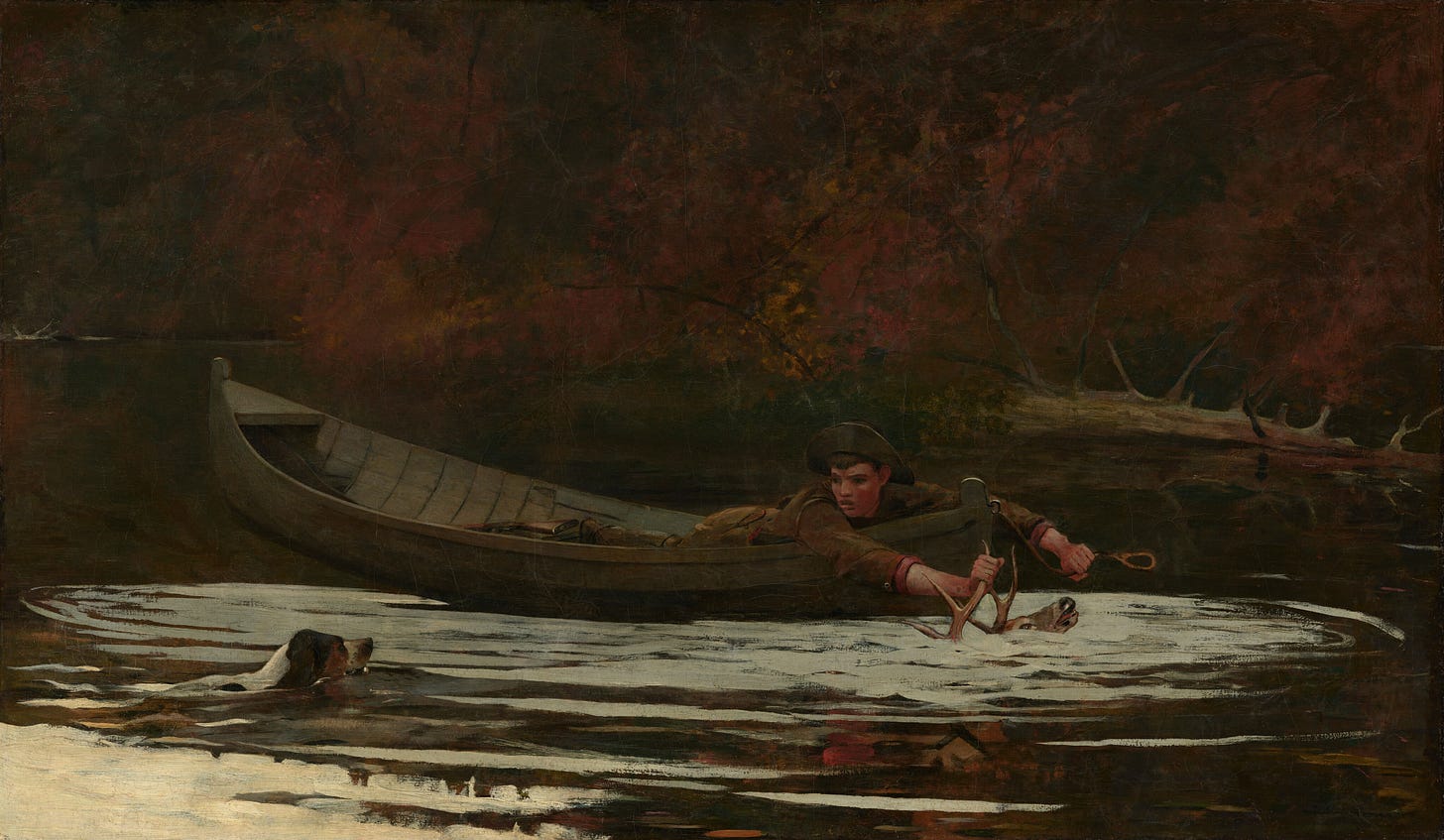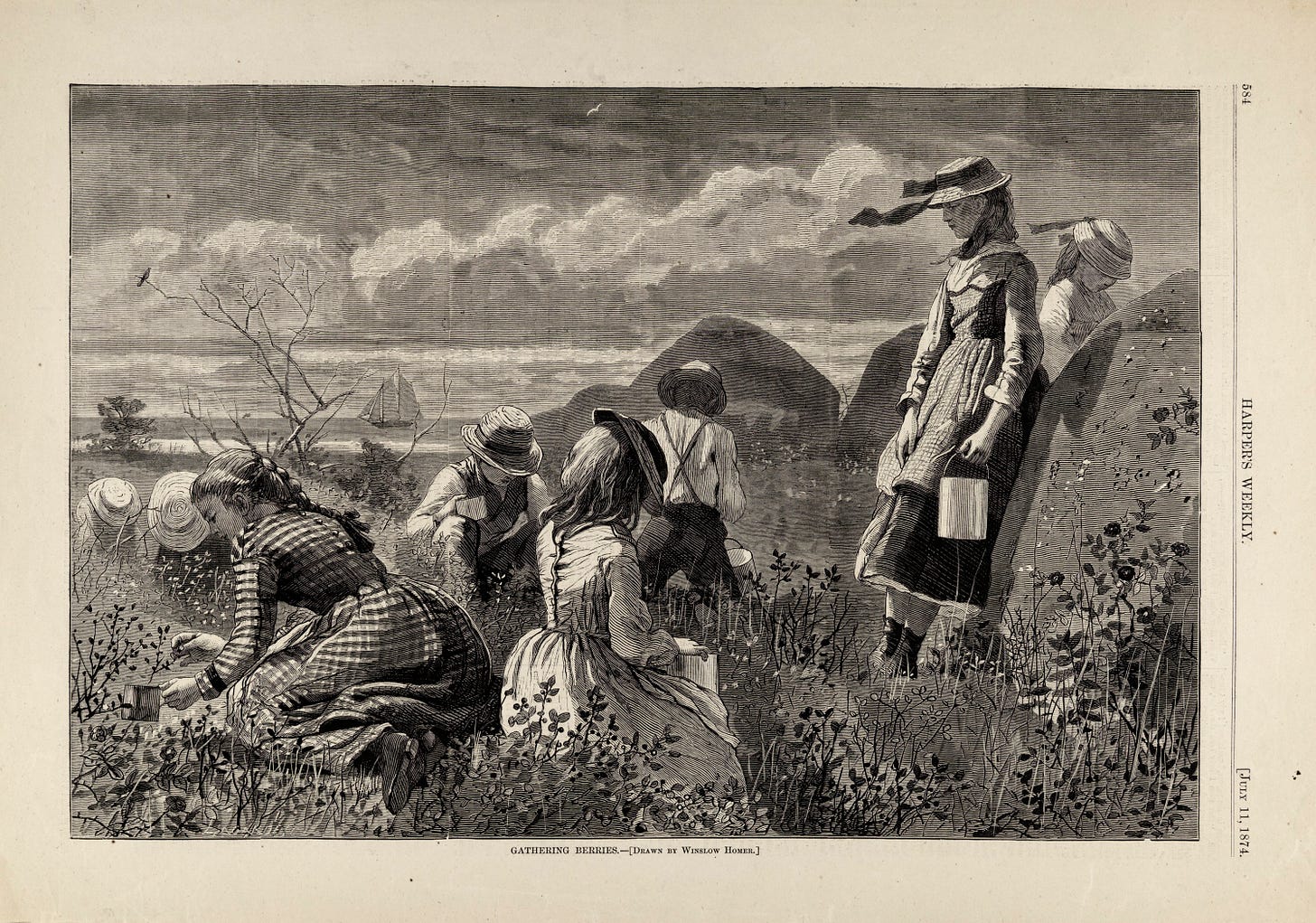Woman the Hunter
Who hunted and who gathered
Hunting is essential to the human psyche, both in reality and in symbolism. Having written about this previously, readers of Next Adventure know I’m fascinated by our connection to hunter-gatherer existences of the past and present.
To fail as a hunter-gatherer meant failing in that particular role, but not as a member of the group. Your role may not have been to hunt or gather, but instead to support these pursuits, provide other services to the group, or simply be supported by the group and be a recipient of services and goodwill provided by others.
Glamorous as it is, hunting continues to garner the majority of attention of the hunter-gatherer coupling. It’s understandable; hunting is glamorous and exciting. Tales of storied hunts infect the mind with drama and intrigue, amplified by time, their grandeur growing with each telling. Windfalls of meat are memorable capstones to these tales, adding sensory (e.g., olfactory, culinary, flavor) connections that solidify meat’s hyperbolized role.
We should not discount the symbolic and psychological meaning of the hunt. Whether it’s 100,000 years ago or today, the act of hunting provides calories, but perhaps more critically, it provides a source for that dramatic storytelling & inspiration, distraction, and variety. An opportunity for reflection, to get some space between members of the group, to gather new information, and perhaps discover new gathering areas.
The stereotype of then, and now, is that men are the hunters. Man the Hunter reified this in academia and the popular imagination. Evidence and ensuing debates bring this gender dynamic into question and for good reason; there’s compelling evidence that women are just as suited to the hunt as men, and to generalize one way or the other is likely inaccurate. Agriculture, the new technology responsible for plenty of the modern scourges I've previously described, is also responsible for entrenched gendered divisions of labor according to these researchers.
In Elizabeth Marshall Thomas’ book, The Old Way, the day-to-day existence of bushmen in the 1950s illustrates a way of life that hints at what pre-agricultural hunter-gatherer existence may have been like. Hunting was important in the group Thomas observed; hunters were respected, and their bounty yielded meat, skin, and bone that village members relied upon. These hunters used poison-tipped arrows that they shot with a bow. After contact with the poisoned broadhead, the ungulate eventually died, but sometimes not for days; these hunters followed them for long distances before the moment of dispatch.
The majority of nourishment and sustenance of this same group, however, came from the activity of gathering, a task completed by women and accompanying children. Also travelling great distances, these individuals walked in the midday sun (thus avoiding nocturnal predators) to reach naturally occurring bounties, such as groundnuts. Using a digging stick to excavate these foods, the women gatherers hauled this bounty back home. Mandatory, but depreciated in comparison to the slaying of a kudu, especially in modern, backward-looking simulacrums. The more important, let alone arduous, of these activities is gathering. Not a bonus, but integral and yet difficult to acquire, the fruits of this labor were hard-won. Hunting, in comparison, while difficult, was anything but certain; coming back empty-handed may have been a disappointment, but it did not mean hunger since the women’s activity was successful.
In Marshall’s ethnography, women were gatherers, but that’s not a universal narrative across all time and space. There’s archaeological evidence that women hunted.
Gathering, whether conducted by men or women, was the primary source of calories for most of our ancestors. In instances where women gathered (like in Thomas’ observations), I see that as the nobler pursuit, what needed doing, the less glamorous, but essential, task.
And today? More men than women hunt, but does that mean men are more suited to it? Or is it simply the end product of social dynamics produced by the modern invention of agriculture? As we tied ourselves to a singular piece of land, fertility rates and the need for labor increased, establishing a gender-based dynamic that remains, but is as anachronistic as it's ever been.
Today, we “gather” our food at a store. Whether man or woman, each seems equally suited and willing to drive an automobile and pick food off a shelf.
Men are better suited for hunting? In a contemporary context? I know hunters who stay in their pickup trucks, road hunting on the opening weekend of rifle season, and talk about hunting at the closest gas station for the remainder of the season, never setting foot in the forest. Then there are other hunters who range, track, wonder, and persist, either deep into the woods or in their minds while sitting in a tree. Whichever you are, you’ll receive no judgment from me. Neither approach seems particularly suited to man or woman.
Ascribing the cherished activity of hunting to men or women is pointless, since both are capable of this activity; this study argues that women are better equipped for the pursuit.
Those of us who hunt do so for many of the same reasons our ancestors did: a bonus of caloric nourishment and an emotional (and perhaps spiritual) pick-me-up. If given the choice between shooting and chasing an animal or carrying a toddler to a gathering spot and digging for groundnuts, I’d choose the former if I had the luxury of doing so.






The game of historical telephone leads to inevitable inaccuracies which we all understand. What’s particularly gross is when people use preferred elements of history as permission to serve themselves. There is a hint of condescension with many hunters who take their daughters and wives hunting for shows and videos. “Watch me as I turn this woman into a provider too.”
Jesse, as always, another great essay. I had to sit with it for a day or two. One of the queries I have been wrestling with is more modern and that is how gender roles shifted and changed. It happened around the WWI and WWII, as rural was shifting towards urban, and manifests in the societal practices of today. I believe historically the truth is that there existed more gender cooperation than simply "roles." Working together verses separation of responsibilities.
I know many, many great female hunters. She practices skills, she learns and trains, she kills, she field dresses, she hauls. This isn't new but it is a dynamic that feels quieted.
When I taught hunting workshops, they were female only invitations. Why I was asked? My example, I had taught orienteering workshops where the attending women, and men, would look at the male regardless that I was the instructor. Again, social learning.